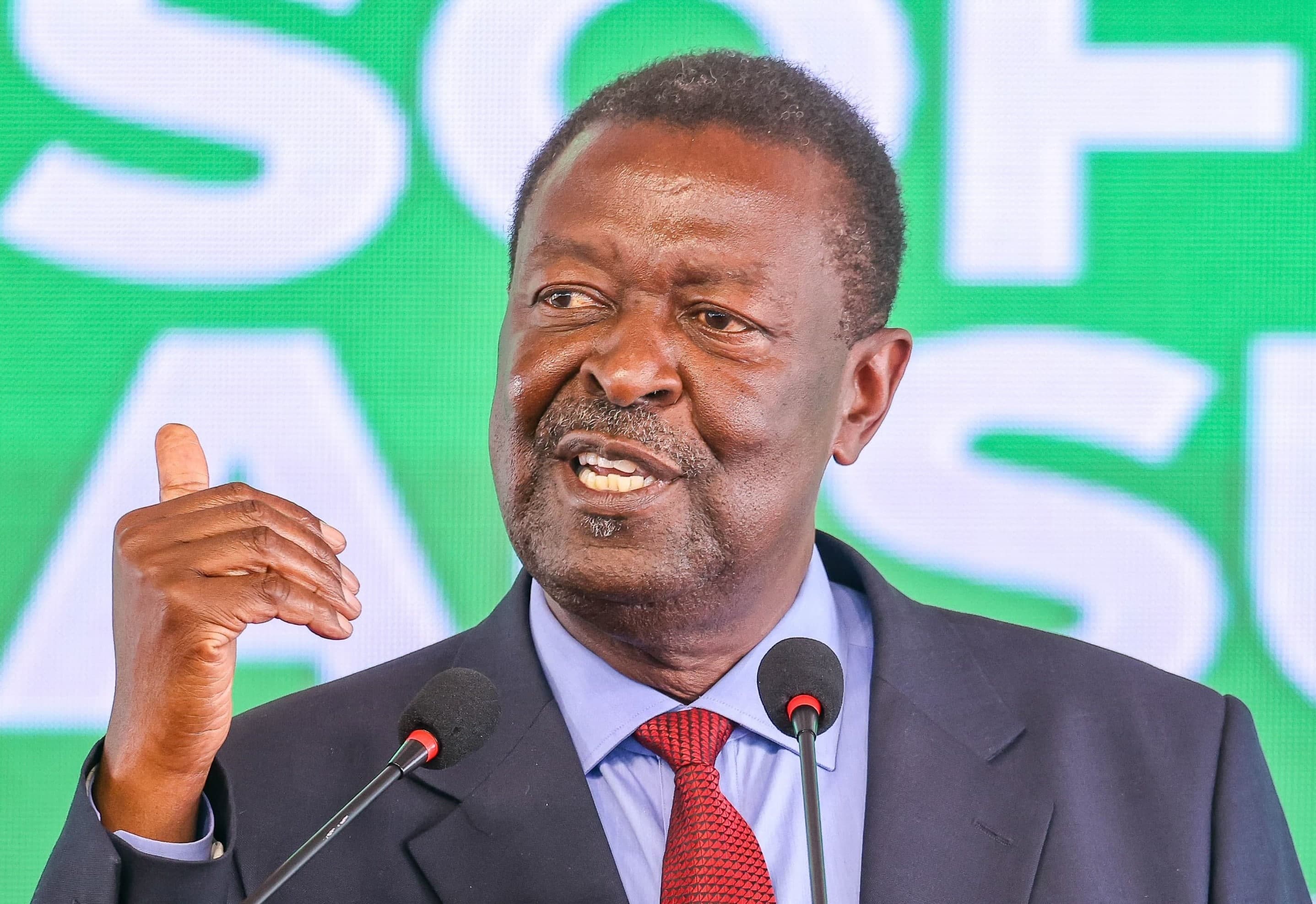We're loading the full news article for you. This includes the article content, images, author information, and related articles.
Prime Cabinet Secretary Musalia Mudavadi has issued a stark warning to the ruling Kenya Kwanza administration, stating the window to fulfil its extensive campaign promises is rapidly closing ahead of the 2027 general election

Prime Cabinet Secretary Musalia Mudavadi delivered a pointed message to his own government on Thursday, November 13, 2025, cautioning that “time is running out” for the Kenya Kwanza administration to realize its ambitious Bottom-Up Economic Transformation Agenda (BETA) before facing voters in 2027. His remarks, made at the Kenya School of Government in Lower Kabete during the 2nd Joint Cabinet and National Development Implementation Committee (NDIC) meeting, underscore a growing urgency within the executive as it navigates a landscape of high public expectations and persistent economic challenges.
“We are now about 20 months away from the August 2027 General Election. This remaining period represents the most critical phase for the Administration to deliver on the promises made to the Kenyan people under the BETA Plan,” Mudavadi stated. He emphasized that Kenyans' expectations are “higher now, more than ever,” leaving the administration with no “luxury of time.”
Mudavadi's call for accelerated action comes against a backdrop of a mixed economic picture and waning public optimism. While the government projects a GDP growth of approximately 5.0% to 5.5% for 2025, supported by the agriculture and service sectors, many citizens are yet to feel the benefits. According to the Kenya National Bureau of Statistics (KNBS), the annual inflation rate for October 2025 stood at 4.6%, a significant moderation from the peaks of previous years. The Central Bank of Kenya (CBK) has also maintained a stable outlook, keeping inflation within its target range.
However, these macroeconomic indicators appear disconnected from the daily reality of many households. A September 2025 poll by TIFA Research found that 62% of Kenyans believe the country is heading in the wrong direction, with 70% stating their personal economic situation has worsened since 2022. The primary challenge cited by the public remains the high cost of living, a core issue that the Kenya Kwanza government pledged to address. The unemployment rate is projected to be around 5.2% by the end of 2025, with youth unemployment remaining a significant concern.
The BETA framework is built on five core pillars: Agriculture; Micro, Small and Medium Enterprises (MSMEs); Housing and Settlement; Healthcare; and Digital Superhighway and Creative Economy. In his address, Mudavadi, who also serves as the Cabinet Secretary for Foreign and Diaspora Affairs, highlighted several areas of progress. He lauded the Taifa Care initiative under the Social Health Authority, which has reportedly expanded health insurance membership from eight million in 2022 to over 27 million by November 2025. He also pointed to successes in the education sector, including the hiring of 76,000 teachers and an increase in learners benefiting from the school feeding programme from 2.2 million to 2.6 million.
Despite these achievements, the administration has faced criticism for unfulfilled promises. The pledge to create one million jobs annually and significantly lower the cost of basic commodities has not fully materialized in the eyes of the public. While the government has implemented a fertilizer subsidy program to boost agricultural productivity, the impact on food prices at the consumer level remains a point of contention. The ambitious affordable housing program, aiming for 200,000 units annually, has also faced implementation challenges and court petitions.
A key challenge acknowledged by Mudavadi himself is the government's failure to effectively communicate its achievements. He noted that despite “solid achievements,” feedback from the National Government Dashboard indicates a significant flaw in how the administration messages its policies and progress to the Kenyan people. “We need to improve on our messaging to be better understood by all Kenyans,” he urged, describing the NDIC as the “engine room” for turning government promises into measurable results.
His address serves as an internal call to action, urging ministries, departments, and agencies to enhance efficiency and accountability. With the 2025 theme of “Consolidating our fiscal space in a new world order for better service delivery,” the government is signaling a focus on adapting to global economic headwinds, including waning development assistance and geopolitical uncertainties. As the clock ticks towards 2027, the Kenya Kwanza administration faces the dual challenge of accelerating the tangible impact of its BETA projects and convincing a skeptical public that its plan is working.
Keep the conversation in one place—threads here stay linked to the story and in the forums.
Sign in to start a discussion
Start a conversation about this story and keep it linked here.
Other hot threads
E-sports and Gaming Community in Kenya
Active 9 months ago
The Role of Technology in Modern Agriculture (AgriTech)
Active 9 months ago
Popular Recreational Activities Across Counties
Active 9 months ago
Investing in Youth Sports Development Programs
Active 9 months ago